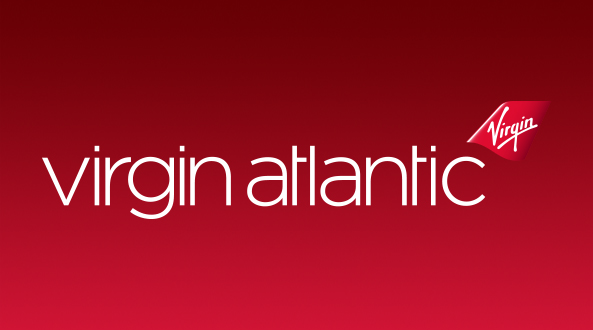- Virgin Atlantic says farewell to the traditional Flying Lady
- Airline reveals five new “Flying Icons” that represent its customers and workforce
- It follows the announcement that the airline will achieve 50:50 gender balance in its leadership by 2022
New Delhi, 02 April 2019: Virgin Atlantic is saying farewell to its Flying Lady and welcoming five new “Flying Icons” to adorn its brand new A350-1000 fleet. The high flyers are a diverse range of men and women representing modern Britain, rolled out on four brand new A350-1000 aircraft this year, followed by a further eight by 2021.

Virgin Atlantic’s use of the Flying Lady was inspired by figureheads that have decorated ships since the 16th century. The artwork for it was based on the pin up girls made famous by Alberto Vargas [in the 1930s and 1940s].
This move represents the changing face of one of Britain’s most loved brands. Virgin Atlantic has made a pledge to tackle its gender pay gap and increase diversity and inclusion across the business, and this is mirrored in the look and feel of the brand. The airline is aiming to have a 50:50 gender balance in leadership roles, as well as at least 12% black, Asian and minority ethnic group (BAME) representation across the company, by 2022.
The airline was a founding member of Women in Aviation and Aerospace in 2018 as well as a signatory of the Women in Hospitality, Travel and Leisure charter (of which Nikki Humphrey, SVP of People sits on the board). Virgin Atlantic has also ensured greater diversity with their engineering apprenticeship and pilot cadet schemes and has developed a Springboard Network which aims to help women in junior roles develop clear career pathways to become senior leaders.
With its latest brand campaign, Virgin Atlantic became the first company to show a same sex couple in its ad imagery in India, and will be the first airline to have male figureheads on its aircraft. In a further move to increase equality, the airline recently announced it has changed its uniform and styling policy so that women could choose whether they would like trousers or a skirt and removed requirements to wear makeup.
Nikki Humphrey, SVP of People at Virgin Atlantic commented:
“The saying goes ‘You can’t be what you can’t see’ and that has never been truer than the aviation industry’s glamourous image in the past. We have been working for a number of years to tackle our gender pay gap, create an inclusive workplace and increase the diversity of our workforce, through the development of our Springboard scheme for women, as well as the launch of engineering apprenticeships. By introducing our new Flying Icons I hope it encourages people from all backgrounds to feel at home flying with us, but also working with us.”
About Virgin Atlantic
Virgin Atlantic was founded by entrepreneur Sir Richard Branson 34 years ago with innovation and customer service at its core. Today Virgin Atlantic carries 5.4 million customers annually, and was recently voted Britain’s only Global Five Star Airline by APEX two years running in the Official Airline Ratings. Headquartered in London, Virgin Atlantic employs over 10,000 people worldwide and operates a fleet of 46 aircraft serving 26 destinations across four continents. Alongside joint venture partner Delta Air Lines they operate a leading transatlantic network – offering up to 38 flights per day between the UK and US with onward connections to over 200 US and international cities. In 2019 Virgin Atlantic will take delivery of their first Airbus A350-1000 aircraft – helping to transform the fleet into one of the quietest and most fuel efficient in the sky. Virgin Atlantic recently achieved the highest sustainability ranking of any airline globally with an A- Leadership rating in the 2018 Carbon Disclosure Project performance assessment.
On May 15, 2018 Air France-KLM, Delta Air Lines and Virgin Atlantic Limited signed definitive agreements to combine the existing trans-Atlantic joint ventures. This transaction is in the process of regulatory clearance. Upon completion the airlines’ expanded joint venture will become the preferred choice for customers travelling across the Atlantic offering the most comprehensive route network, convenient flight schedules, competitive fares and reciprocal frequent flyer benefits, including the ability to earn and redeem miles across all carriers. Customers will also benefit from the co-location of facilities at key hub airports to improve connectivity and access to each carrier’s airport lounges for premium passengers.
In February 2019 Virgin Atlantic acquired Flybe and Stobart Air, as part of a consortium with Stobart Group and Cyrus Capital Partners. Flybe is Europe’s largest regional airline, flying 8.5 million passengers each year to 170 destinations, connecting customers around the UK regions to Virgin Atlantic hubs in Manchester and London Heathrow and beyond. Stobart Air is a profitable franchise operation based in Dublin and includes an aircraft leasing business (“Propius”) For more information visit: www.virginatlantic.com or www.virginholidays.co.uk
